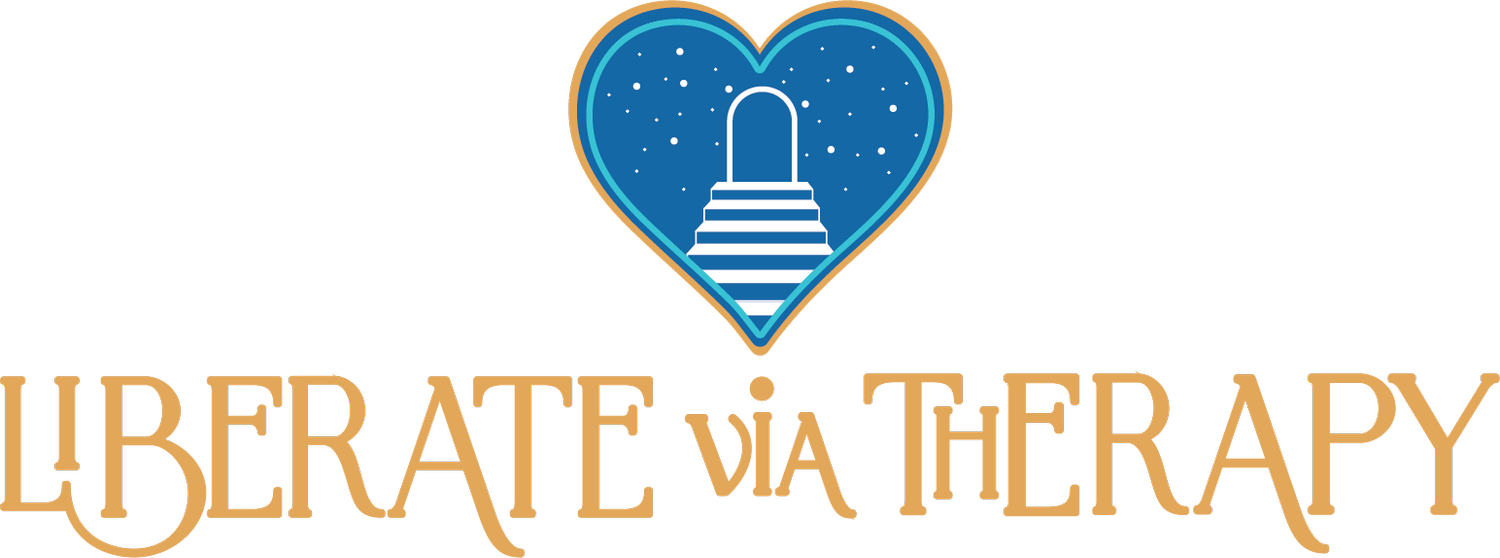After the Affair: How Infidelity Counseling Can Forge a Path Forward
Does an affair mean the end of a relationship? As a licensed therapist, I have an answer that might shock you. Yes, infidelity does lead to the end of a relationship 100% of the time. What I mean is that the pre-affair relationship is over forever.
However, that doesn't necessarily mean the end of a couple's journey together. It also doesn't mean that a couple can't move on from cheating toward a new, healthier relationship with each other. In fact, one of the first steps in post-infidelity couples therapy is deciding if both partners actually want to embark on this healing journey and salvage the relationship. In this post, I want to talk about some of the ways that infidelity counseling can be used to forge a path forward.
Understanding Why Affairs Happen
Following an affair, the betrayed partner often becomes obsessed with the details and finds it difficult to deal with the painful emotions caused by the affair. They want to know when the infidelity took place, where the cheaters went to carry out their trysts, and all the lurid details of the flirtatious texting that took place. They may even play images of betrayal over and over in their heads. However, it's less common for the betrayed partner to be curious about the why of the infidelity. It's crucial to recognize that affairs are seldom about the affair partner. In reality, a partner is usually "acting out" due to one of these reasons:
Insecurity and Emotional Intimacy Needs: An affair can provide an ego boost to someone who feels overlooked by their partner in their current relationship. In some cases, the desire for an ego boost may not be related to a current partner. A person may have deep-seated insecurity that stems from past rejection. In addition, a person who simply feels insecure about where they are in life compared to others may seek out the feeling of being "desired" by someone.
Escapism: When financial stress, work stress, or the demands of family feel like too much, an affair can provide an escape into a fantasy. An affair can be an avoidance tactic for someone who doesn't want to address issues in their home life.
Revenge: A partner may subconsciously be trying to "settle the score" after feeling belittled, neglected, or overlooked by their partner.
Immaturity: A person who leans into an affair may simply be unwilling to deal with the responsibilities of a committed relationship.
In some cases, an affair is driven by shame. A person may feel insecure about sharing their fantasies with their partner because they fear rejection or disgust. In this type of scenario, the cheating partner may seek out a sexual affair with someone open to an experience that they feel is necessary for their satisfaction. When couples hyperfocus on the physical details of the affair when trying to rebuild trust, they miss an opportunity to examine the motivating factors that made cheating seem like a viable means to an end.
Coming Together Following an Affair
Have you decided to try to repair a relationship after an affair? Get ready to meet your new partner. If you were the one betrayed, you must fully embrace a plan to leave the affair behind, creating a safe space for genuine healing. The affair cannot be used as "currency" every time you want to win an argument.
Constantly holding a past affair against your "new" partner leaves you stuck in your old relationship. That's the relationship where the conditions were right for infidelity. However, there still needs to be room to properly grieve the loss of the old relationship. True healing involves grieving the pre-affair relationship and committing to a fresh start, not as a free pass for the unfaithful partner, but as a step towards a healthier relationship dynamic.
In all of the research on creating post-traumatic growth (PTG) in couples attempting to reconcile following infidelity, there is one exceptionally interesting piece of news. A 2014 study that looked at recovery from infidelity among couples in continuing relationships found that the one consistent predictor of growth was forgiveness. In a healthy romantic relationship, true forgiveness cannot occur with true remorse.
Research on post-traumatic growth (PTG) among couples has shown that forgiveness plays a key role in healing. True forgiveness, however, is predicated on sincere remorse and a heartfelt apology, without excuses. This sets the foundation for rebuilding trust and emotional intimacy, allowing both partners to move beyond the cycle of blame and regret and towards a healthy relationship.
A sincere apology is the true starting point to a way forward. A genuine apology is one without excuses or justifications. The path forward also requires a sincere acceptance of the apology. When the apology and acceptance are merely done performatively, this traps the couple in a cycle of accusation and defeat. The betrayed partner is constantly ruminating on how they could have missed the signs. The unfaithful partner is imprisoned by not knowing how else to prove to their partner that they deserve another chance.
Using EFT Infidelity Therapy to Move Forward
Emotion-focused therapy (EFT) can be an exceptional tool for partners who feel trapped in a post-infidelity cycle of blame and regret. Drawing on research from attachment theory, (EFT) is a form of short-term therapy that helps couples to rekindle emotional and physical bonds. It aids in reconnecting emotionally and physically by addressing core attachment wounds and unmet needs, from childhood through to adult stresses. EFT promotes a mutually supportive dynamic, essential for fostering personal growth and healing.
Exploring core attachment wounds creates the opportunity to talk about pain and hurt that may be driving compulsive behaviors. EFT is especially beneficial for couples who are struggling with:
Anger.
Alienation and isolation.
Grief.
Fear.
Loss of trust.
Sense of betrayal.
By using EFT, couples can restore emotional ties that allow them to feel emotionally and physically open and responsive. This type of couples counseling fosters individual and shared growth simultaneously by identifying unmet needs that echo from the earliest days of childhood through the stresses of adult life. While a couples therapist facilitates growth through EFT, the beauty of this process is that the ultimate goal is to allow couples to move forward with solving their problems in a safe, mutually supportive dynamic.
Read about How Emotionally-Focused Therapy Helps Men Embrace Their Emotional Side.
Online Couples Therapy After Infidelity
If you're looking for sex therapy infidelity resources in Florida, Liberate Via Therapy offers virtual therapy that utilizes the principles of EFT to help partners with the healing process and rebuild following affairs. In addition to our in-person sex therapy, individual therapy, and relationship therapy in California, we also offer virtual couples therapy in Florida. Book a consultation online with Liberate Via Therapy today.






